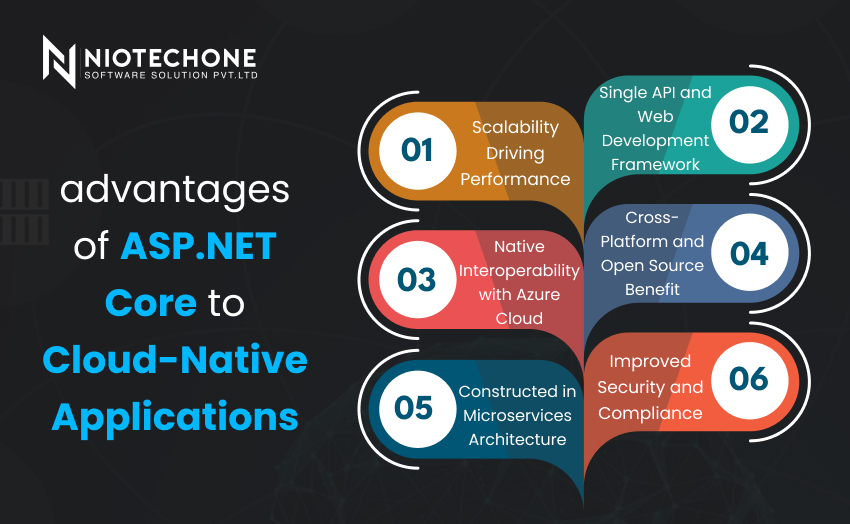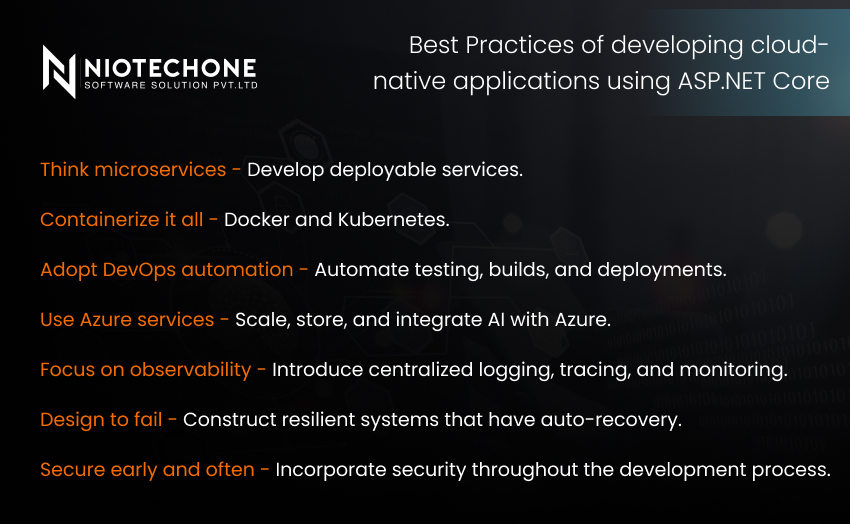We will discuss the most effective benefits in detail
1. Scalability Driving Performance
Scalability is one of the largest issues of cloud-native systems, the capacity to process thousands (or millions) of requests effectively.
ASP.NET Core is performance-oriented. It is optimized to run, has an asynchronous programming model, and has a small memory footprint, which makes it suitable for high-load applications.
Real-world example:
Recently, our team of .NET Core application developers at Niotechone migrated an enterprise CRM of a client to an ASP.NET Core microservices architecture, which has led to a 60 percent faster load time and a 40 percent lower cost of cloud hosting.
2. Single API and Web Development Framework
ASP.NET core offers a single model of web development and API development. A single codebase can be used to create RESTful APIs and modern front-end web applications.
This suits well in teams that are involved in the development of custom software projects where efficiency and consistency are paramount. It also works with front-end frameworks such as React, Angular, and Blazor – full-stack development within a single ecosystem.
3. Native Interoperability with Azure Cloud
The fact that ASP.NET core is natively compatible with Microsoft Azure is one of its greatest strengths.
Azure offers a complete ecosystem of modern cloud-native solutions, including deployment automation and advanced analytics.
Key integrations include:
- Azure App Service to deploy easily.
- Azure SQL Database to scale data management.
- Azure Serverless computing with Azure Functions.
- Microservice orchestration with Azure Kubernetes Service (AKS).
- CI/CD automation with Azure DevOps.
These services, combined with ASP.NET Core, provide fast, flexible, and cost-effective cloud-native deployments, which is one of the reasons why the development of cloud applications on Azure is rapidly increasing in 2025.
4. Cross-Platform and Open Source Benefit
ASP.NET Core is open-source and cross-platform, eliminating the previous reliance on Windows servers. It is highly compatible with Linux, macOS, and Docker, which significantly reduces hosting and infrastructure expenses.
In the case of businesses that deal with a software development firm in Rajkot, such as Niotechone, this means increased flexibility, reduced time to market, and increased ROI.
5. Constructed in Microservices Architecture
Monolithic systems are being replaced by microservices, smaller, self-contained services in cloud-native development, which interact via APIs or message brokers.
ASP.NET core was built to be microservice-friendly. Its modular design enables developers to create independent services, deploy them independently, and maintain them with minimal downtime.
This has been particularly useful in the case of custom enterprise mobility software solutions where performance, modularity, and scalability are paramount.
6. Improved Security and Compliance
Cloud-native systems should be security-focused, particularly when dealing with sensitive business or user data.














